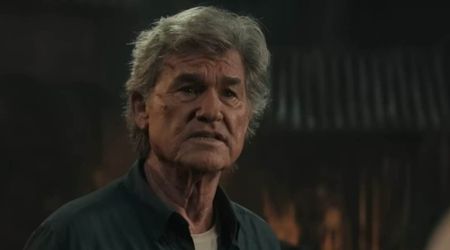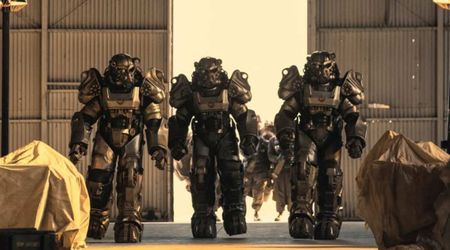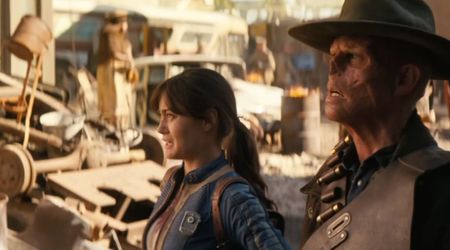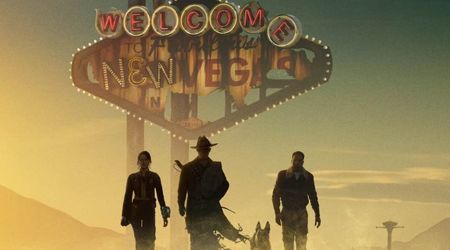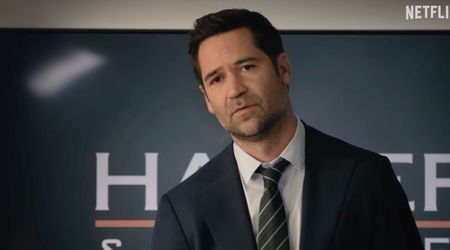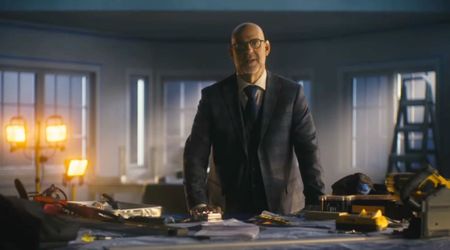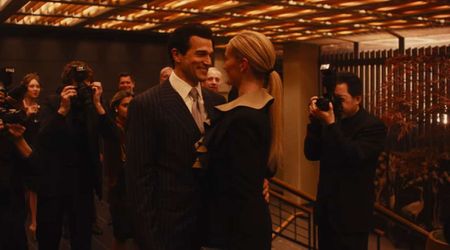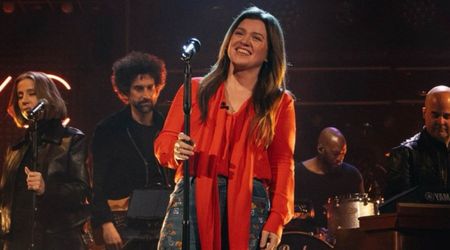'Woke' Review: Navigating Blackness inside out, miniseries' humor-laced honesty makes it a must-watch

Lately, a lot of focus has been on how the Black Lives Matters movement is bringing up White fragility, guilt or denial and hidden racism within corporate America. There have also been attempts like 'P-Valley' or 'Lovecraft Country' to portray Black culture and identity, surviving against all odds, and center around "resilience" storylines.
This is where 'Woke' ironically differs from the glut of woke TV and film in that it focuses on a Black character who is 'unwoke' and who buys into the 'see no color' creed at the start of the series. This also focuses on him making mistakes and Black fragility when he finally 'awakens'.
The show centers around Keef (Lamorne Morris), a happy-go-lucky Black cartoonist whose brand of easy, uncomplicated humor in the comic strip 'Toast n Butter' is about to be syndicated because it appeals to White audiences and lends itself to easily marketable merch. At the start of the series, he is blissfully apolitical, living in San Francisco which is multi-cultural enough for him to exist in a bubble, only worrying about mundane stuff like how to tell his roommates he'll be moving out once he buys his own place with the money he will earn.
In an act of disassociation, he wants his art to 'be light' and resents the fact that just because he is Black, his art has to make a statement. This dissociative state is shown visually by a pair of headphones he always has on his ears, the music blocking out the world and its realities.
But all that changes, when a policeman yanks it off his ears and slams him to the ground, mistaking him for their suspect -- "a Black male who is six foot tall" -- a description so generic that it's laughable -- as Keef's roommate, Clovis (T. Murph), later points out saying, "Man, that's all of us". Keef's trauma stems from the fact that while he knew Black people were under attack he never thought it would happen to him. "Why, coz' you special?" asks Clovis.
Gunther (Blake Anderson), Keef's other roommate, who ran up to rescue him from the cop, is treated very differently despite being confrontational because he is White. And the more Keef thinks about the incident, the resulting trauma sees him spiral into a world where sharpies, trash cans, and liquor bottles sprout cartoon lips and facial features and "talk" to him after he has 'awoken'.
It is both a portrait of a slowly unfolding mental breakdown as well as a Black man's political awakening as he tries to navigate his Blackness, from the inside out, touching on some pretty sensitive spots on the way.
Needless to say, this awakening is not easy nor is it a smooth one. The company that holds the rights to his comics kick him out of his premises after he has a meltdown at the "Golden Con" where he lets zingers like "Stop saying slavery happened a long time ago. You know what happened a long time ago? Jesus. But you folks haven't let him go" fly at his mostly White audience, (including a Burnt Toast cosplayer who does Blackface). But immediately afterward, he tries to "walk it back" as Ayanna (Sasheer Zamata), the editor of a local 'woke' paper, points out, as his career implodes because he didn't "play by the rules".
And that is this miniseries' power. Keef doesn't automatically 'know' the right thing to do or so -- which results in some hilarious missteps on the way like the 'Blacks for Rent' art project he dreams up after his Blackness is treated as a commodity at a rich woman's party or when he gives his White girlfriend, Adrienne (Rose McIver), 'blackface' in his artwork, so that it is better received at the super-black 'noir' art salon. Keef struggles with his Blackness -- he is confused about what he should stand for and what he should do to confront a world that doesn't care for people like him but get outraged when a koala bear gets shot.
The miniseries also doesn't assume that all White people are automatically wrong or out to hurt Black people -- in fact, two of its most empathetic characters, Gunther and Adrienne, are White. Gunther and Clovis make journeys too -- Guther about his sexuality when he is suddenly caught in an unexpected threesome and Clovis about his sexist, creeper attitude towards women in parallel interlinking storylines. The friendship between the trio is genuine and the best moments are when they are together. A particular highlight is when the three play a guessing game about which frat boy was going to shout the n-word while singing along to a hip hop song at a bar.
It is the human interactions that make 'Woke' work and there are some splendid character performances here. Episode 4 is when the series truly picks up its pace and becomes extremely binge-worthy. Don't let the title put you off -- because the show is too charming to miss.
'Woke' premiered on Hulu on September 9.

